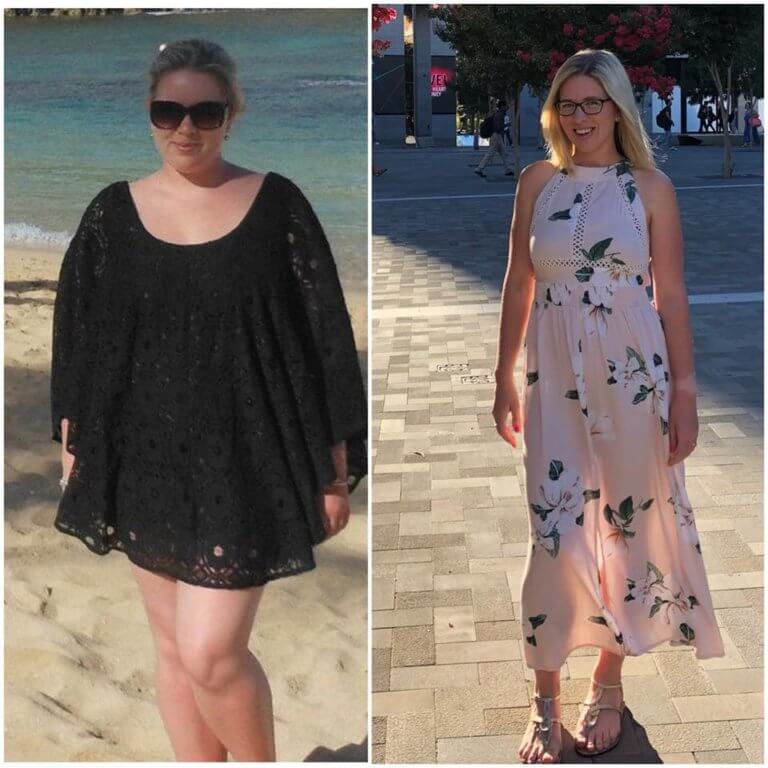REVEALED! The best carb, protein and fat break down for weight loss
We’re told to eat everything in moderation when it comes to weight loss and maintaining a healthy body.
And now Healthy Mummy nutritionist Lauren Kolstad has explained the best carb-protein-fat breakdown we should be aiming for, using the 28 Day Weight Loss Challenge as our guide.

How the body uses food for fuel
Too many carbs, fats or protein are not good for you – but just how much of each should we include in our diet each day?
Lauren says first of all, it’s important for us to be eating the recommended number of calories each day.
“Your body uses food for fuel,” she says. “Calories (energy) which you get from nutrients and vitamins help your body with basic life functions like breathing, your heart beating, muscle contraction etc. This is why eating enough, nutrient dense food is so important!
“Your BMR is your basal metabolic rate – basically the minimal energy your body needs to undertake these functions. Its based on gender, age, height, weight and activity level. The more percent muscle composition of your body, the more efficient it is at burning energy.”
Join our 28 Day Weight Loss Challenge to make sure you are eating the right amount of calories each day.
‘Less is not always best’
Lauren says that eating more than 1,200 calories can seem scary and goes against what a lot of us hear about weight loss, but there is a science behind it!
“Less is not always best,” she says. “Rather than eating less calories, you need to focus on making sure the calories you do consume give you real bang for your buck in terms of nutrients.
“It is really important to eat, at a minimum, your BMR calories. This isn’t just about weight loss, but to ensure that your body is working efficiently and getting the energy it needs.”
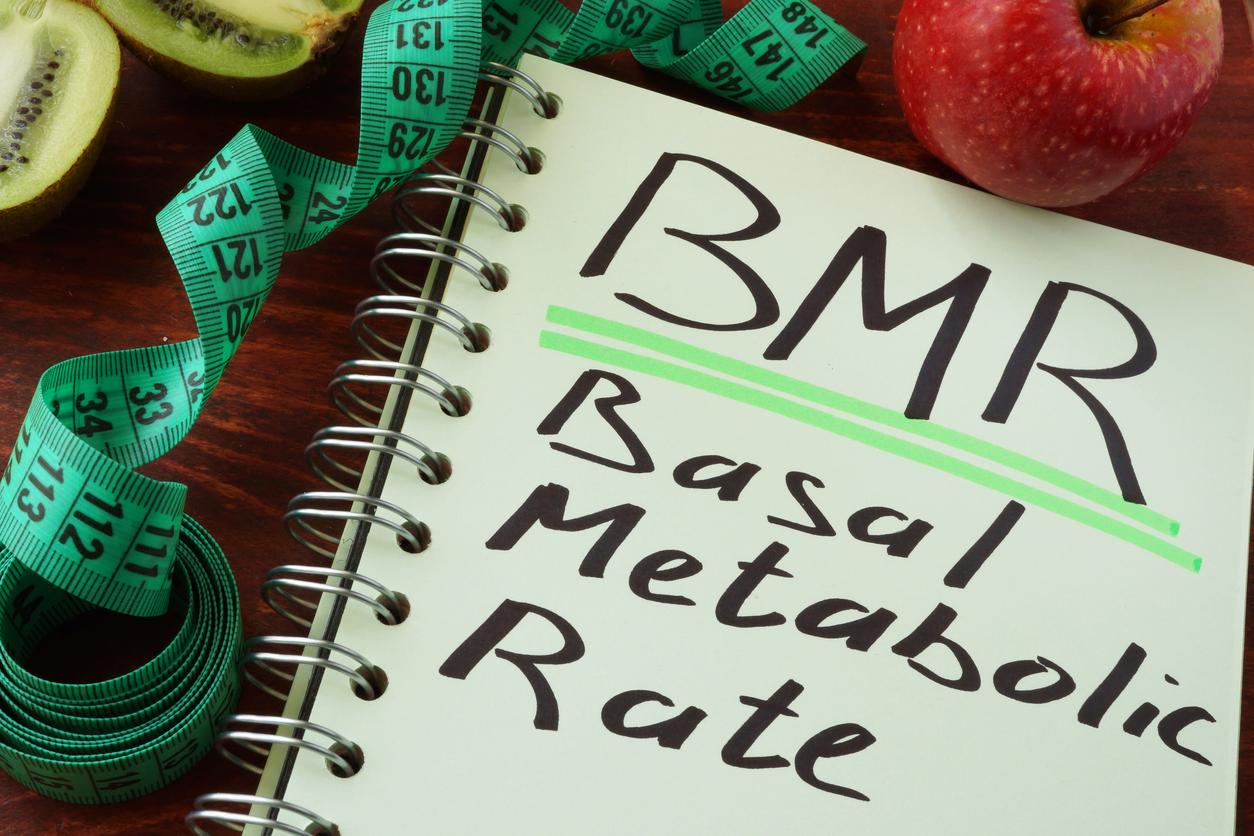
To work out your BMR, check our your BMR calculator here.
Lauren adds that when you exercise, your calorie needs increase in order to allow your body to work at a higher intensity and repair itself afterwards.
If you’re trying to lose weight – it becomes an equation between:
- The energy your body needs to function
- The energy your body is using to stay at the weight you are currently and
- The energy you’re burning during the day (both from bodily functions and exercise).
“In order for weight loss to occur, your energy intake needs to be in deficit to what you’re using – energy in vs energy out,” Lauren says.
“However you don’t want to eat so little that you go below your BMR (as it will affect your bodies metabolism) or it becomes not sustainable in the long run.”
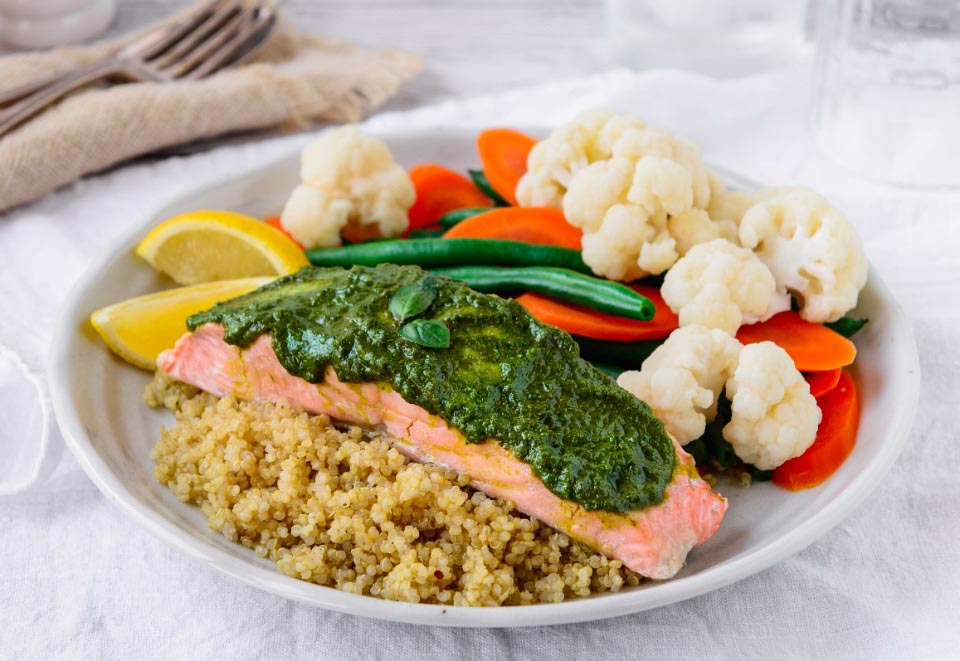
Lauren’s recommended carbohydrates, fat and protein breakdown:
Carbohydrates: 45-65% of calories
Fat: 20-35% of calories
Protein: 10-35% of calories
“Unless you’re following a lower carb, higher protein plan (quite a few women who have PCOS or have health benefits with a lower carb intake),” Lauren says.
Those on a lower carb intake should aim for:
Carbohydrates: 45% of calories
Fat: 25% of calories
Protein: 30% of calories
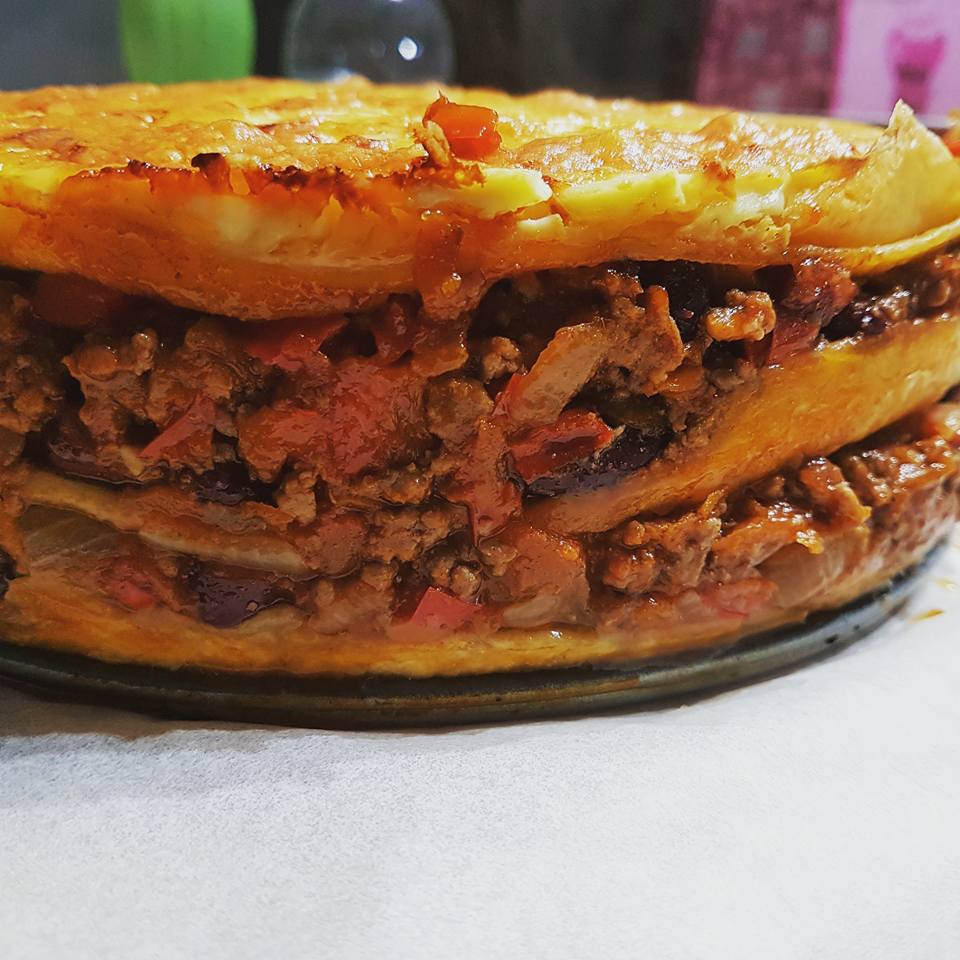
This Mexican Lasagne has carbs, protein and good fats.
“Carbohydrates are not the enemy, but the type of carbs you eat is important. Sugar, vegetables and grains all provide carbs – what you want to aim for is complex carbs (vegetables and wholegrains) rather than simple carbs (sugar and very processed grains),” says Lauren.
Complex carbs provide longer lasting energy and are used more efficiently in the body.
“Excess carbs don’t ‘turn into fat’, all excess energy, whether it be from carbs, fat or protein, will be stored for later use. Which is why its important to find the right balance of energy in vs energy out for you.”
Weight loss while breastfeeding:
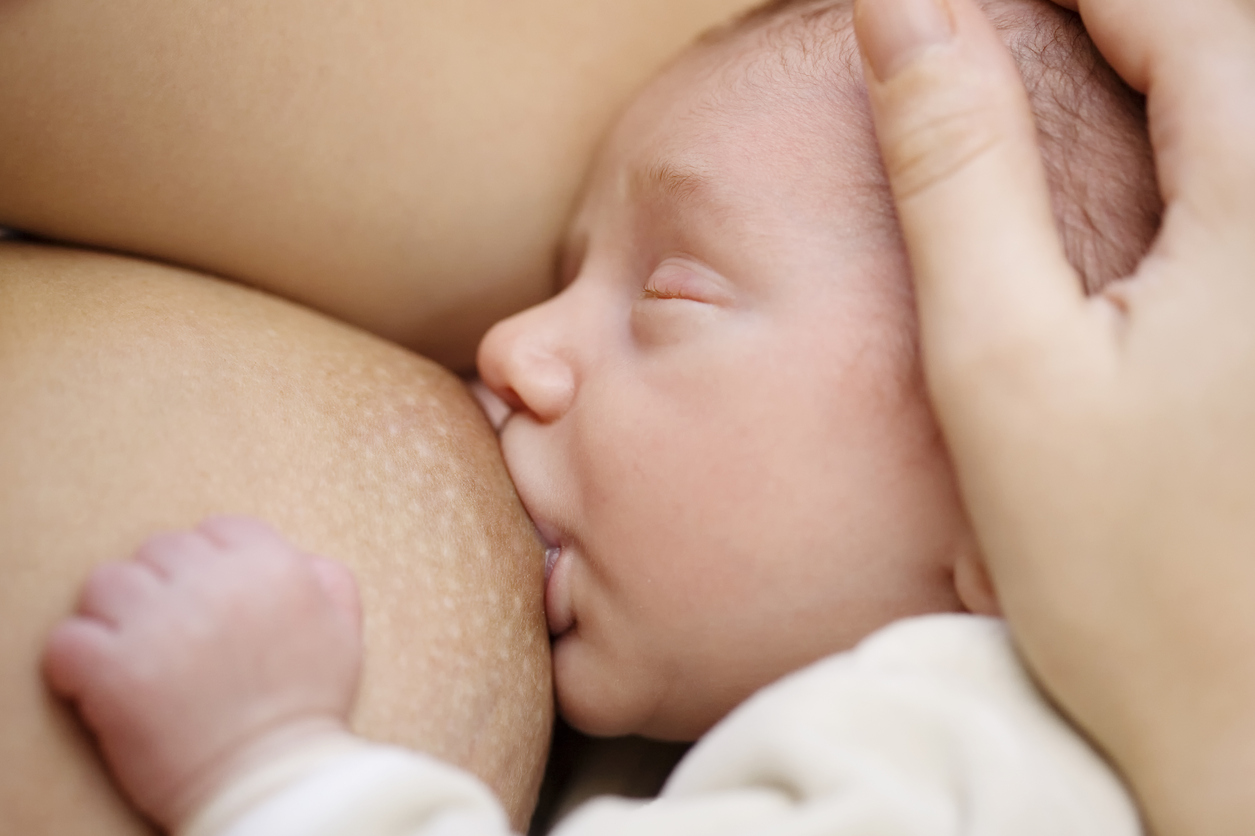
Source: iStock
“If you’re breastfeeding, your body is using more energy to make milk, plus you need to replenish the nutrients which goes primarily into your breastmilk before they come to you,” says Lauren.
“It’s usually recommended that you increase your food intake by around 500 caloriesto make sure your body is getting enough energy and nutrients to maintain a healthy milk supply. Plus you’re going to want to make sure you’re drinking enough water so you don’t get dehydrated.
“If you’re pregnant you have an increased calorie requirement during the second and third trimester – so increase your calories by about 300 at this time.
“Your protein needs also increase when your pregnant and breastfeeding (or very active) so if possible – try and have some protein each time you eat.”
Thanks so much for this Lauren! Very informative information!
Join the next 28 Day Weight Loss Challenge here.
Access thousands of recipes on the 28 Day Weight Loss Challenge!
Our 28 Day Weight Loss Challenge is a family-friendly, breastfeeding-safe program designed FOR MUMS to help them tackle their health and lose the baby weight.
Every week you are given a different meal plan to follow and each month we add new recipes to our Challenge Recipe Hub. That way, you’ll never get bored and stay on weight loss track while digging into healthy, yummy recipes.
Learn more about our 28 Day Weight Loss Challenge HERE



